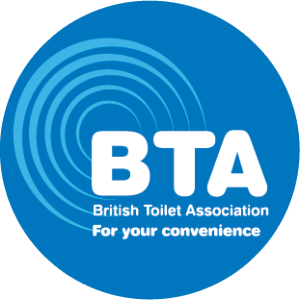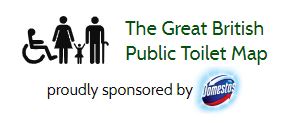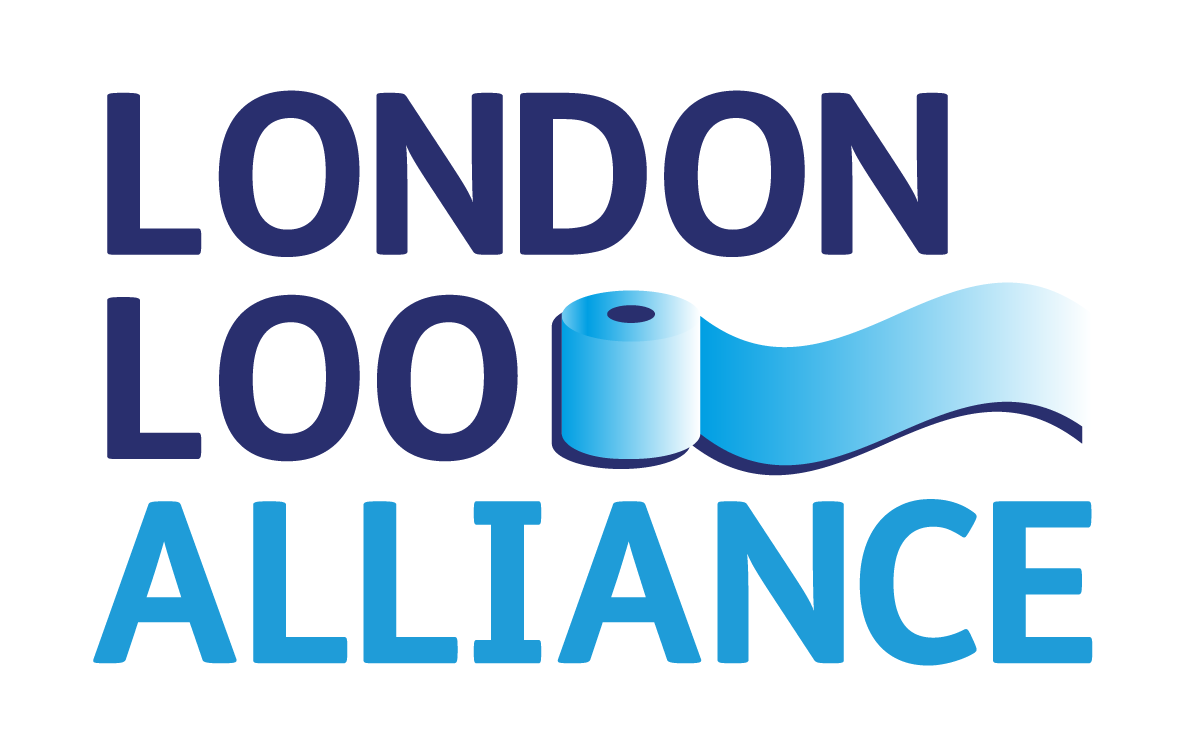Changing Places VIDEO

February 2019

1,403 units
installed & mapped
Check out all the toilets on our interactive CP Toilet Map at www.uktoiletmap.org
The BTA is proud and pleased to be a supporter of the Changing Places campaign. Working with the Changing Places Charter Group our organisation is hoping to help and assist everyone needing the CP toilets that would help them to enjoy the day to day activities many of us take for granted.
21st February 2019
Local Government Minister Minister Rishi Sunak MP visited Arsenal FC’s stadium to raise awareness of Changing Places toilets.
He met Arsenal fans Thomas, and his mum Barbara, for whom Changing Places are vital for Thomas’s experience at the stadium.
The Ministry of Housing, Communities and Local Government published a social media video from this visit to raise the issue further and highlight the government’s push to get more Changing Places toilets installed across the country. The video was published on our department’s Twitter and Facebook pages.
It would be wonderful if we could encourage lots of you to retweet the Twitter post (@MHCLG) and share the Facebook post (/MHCLG) to help to spread the word.
The visit was in light of the Government on 24th December 2018 announcing its intention to consult soon on making it mandatory to install Changing Places toilets in new, large buildings commonly used by the public. More information: https://www.gov.uk/government/news/ministers-act-to-increase-changing-places-toilets-for-severely-disabled-people
The Changing Places Consortium
The Changing Places Consortium is a group of organisations working to support the rights of people with profound and multiple learning disabilities to access their community. The Changing Places Consortium is campaigning for Changing Places toilets to be installed in big public places.
The members of the Consortium are:
The Changing Places Consortium launched its campaign on behalf of those people who cannot use standard accessible toilets.This includes people with profound and multiple learning disabilities and their carers, as well as many other disabled people. They need Changing Places toilets with enough space and the right equipment, including a height adjustable changing bench and a hoist.
Relief on Business Rates for Toilets
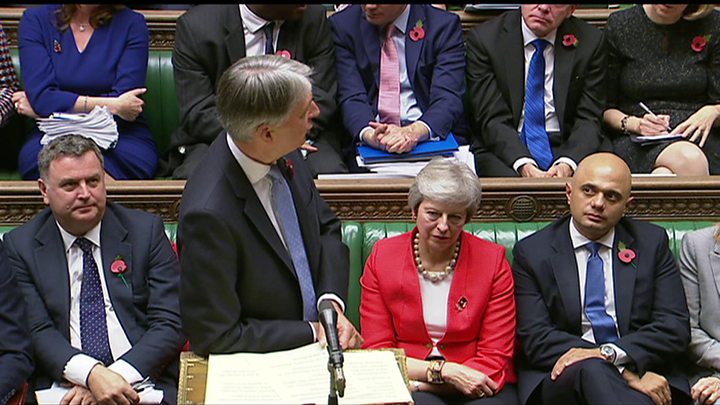
21 Months on and still no Bill to remove the Business Rates on Public Toilets
July 2020
The BTA continues to call on government to pass the legislation that has been agreed and supported by the House of Lords to remove the Non domestic rates levy from all Public toilets across the UK. The Bill was set before the Commons recently but was rejected or defferred by this conservative government as the Coronavirus pandemic was taking thier concentration.
No thought or understanding appears to have been given to the fact that the re,moval of these rates would have given Local Authorities some additional monies to fight the pandemic by affording them the flexibility to put in additional supplies of soap and/or sanitizer – particuarly when the pandemic was at ots PEAK !!
Hpw many more months wll we have to wait to see the conclusion of this greatly needed legislation and when will this govwrnment wake up to the fact that Public Toilets are a vital piece of infrastructure and an essential service provision for all the citizens of our nation travelling to and from work and play and even more vital to the hundreds of thousands of visitors to our country who bring revenue and a much needed boost to local economies.
NOVEMBER 2019
PURDAH !!
Having been almost obliterated by the PM when he dismissed parliament a few months ago – we have been fighting to get this bill re-instated by the ministers. Unfortunately, with the calling of a General Election next month then parliament immedaitely enters a PURDAH period where no business can be enacted until a new government is established. So we’re back to SQUARE 1 or half way down the SNAKE…..who will catch us.
CANCELLED due to the recent illegal proroguing of Parliament
Although the government has been re-instated and business is returing to normal (?) the disappointing news was received that many of the pieces of legislation going through the two houses had been “DROPPED”
Government had retained the bills relating to the 2022 Commenwealth Games and also HS2 — but decided to get rid of the other bills including Education, Disability and Public toilets.
The BTA has been in regular contact with representatives of the MHCLG and will continue to fight for the re-intaement of the Rates Reduction Bill – at its earliest opportunity — Notes to follow.
PREVIOUSLY REPORTED
29 October 2018
Budget 2018: Chancellor announced Business rates cut for public toilets
Owners will no longer pay business rates on public toilets, the chancellor announced.
The BTA has been campaigning for nearly ten years to get some RELIEF for organisations providing this vital service to everyone. We were delighted to hear the chancellor speech (jokes and all) as it brought with it an opportunity for providers and suppliers to put some added revenue into cleaning & maintenance activities.
Publicly accessible toilets are VITAL to our everyday activities and in addition to being a total necessity for many user groups and individuals with accessibility needs – parents with young children and supporting the dignity and well-being of older persons – they bring extended relief for our tourism industry, day-trippers and the growing numbers of mobile workers travelling throughout the UK.
Philip Hammond revealed the policy in his Budget speech, joking it was virtually the only announcement that had not been “leaked”. We’re hoping the news will cascade across the borders and Scotland, Wales and Northern Ireland governments will quickly follow suit.
The relief will apply to any standalone facilities available for public use, whether publicly or privately owned.
The British Toilet Association has estimated that 40% of public toilets have disappeared in the past decade.
More than 600 public toilets across the UK have stopped being maintained by councils since 2010 and in 37 areas major councils no longer run any, according to figures obtained by the BBC.
Details of that report are ccontained in a deperate POST on this website
Local authorities are not legally required to provide toilets, so they are often closed as councils look to cut costs. Public toilets have traditionally been liable for business rates in the same way as other non-domestic premises such as shops and offices. MPs groaned as Mr Hammond made a string of toilet jokes, including saying that local authorities could at last “relieve themselves”.
The chancellor also promised to help High Street shops by cutting business rates by a third for all retailers in England with a rateable value of £51,000 or less.
BBC Freedom of Information findings
Reality Check: Public toilets mapped
15 August 2018 by Lora Jones & Rachel Schraer BBC Reality Check
For travellers on their summer holidays, where to stop for a toilet break can be a source of worry. Public toilet provision has been declining for a number of years and the BBC has learnt that some UK high streets and tourist hot spots now no longer have any council-run public toilets.
At least 673 public toilets across the UK have stopped being maintained by major councils (unitary, borough, district and city) since 2010, according to figures obtained under the Freedom of Information law. In that time, the UK’s population has been increasing.
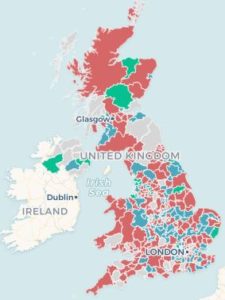
Change in the number of
council-run public toilets, 2010* to 2018
* Where no data for 2010 was available, data for subsequent years up to 2013 has been used instead. Source: BBC FOI requests.
![]()
Data supplied by 376 of the 430 councils contacted by the BBC showed that:
- UK councils stopped maintaining around 13% of public toilets between 2010 and 2018
- But this masks big regional variations – Cornwall Council has stopped maintaining 94% of its toilets, on the Isle of Wight it was 92% and 80% in North Ayrshire
- In 2018 there were 4,486 toilets run by major councils in the UK, down from 5,159 in 2010
- In 37 areas, major councils no longer run any public conveniences
- Highland Council maintains most public toilets (92), followed by Gwynedd (73) and Pembrokeshire (73)

Local authorities are not legally required to provide toilets, meaning they are often closed as councils look to cut costs. A Local Government Association representative said that, while councils were doing everything they could to keep public toilets open, substantial reductions to their budgets have meant they have had to make “tough choices” about public facilities.
The Department of Housing, Communities and Local Government says it encourages councils to keep toilets open to the public since they are a “valuable community amenity”. These findings do not mean there are no toilets available at all, however – in many cases larger councils are shifting responsibility to smaller parish or town councils. Others have been handed to community groups and paid for through fundraising while some councils are relying on the goodwill of businesses to make their toilets available to the public.
Andy McGuinness, campaign manager of Crohn’s and Colitis UK, claims handing the running of facilities over to parish councils in England is only a short-term fix, because it simply passes on the financial pressure. “It takes the upkeep off their books but it’s not sustainable. Parish councils will run them for a couple of years and eventually they’ll probably close anyway,” he said. He added that, without action from government and local authorities, the increasing closures of public toilets in England posed a “very real problem for the millions of people living with continence problems”.
Local councils (such as town and parish councils) get their money from a share of council tax.
Sue Baxter, who chairs the National Association of Local Councils, said smaller councils were increasingly taking over discretionary services such as toilets as budget pressures meant larger councils were finding them harder to provide. But, she said, they faced a dilemma – whether to allow toilets in their local area to close or take them on and face a hefty “toilet tax” in the form of business rates paid on the premises.
What are your rights?
- There is no particular right to access a toilet in publicand local authorities have no duty to provide them
- Businesses that provide toilets for their customers have no legal duty to do so for non-customers
- Workplacesmust provide suitable conveniences for their staff
- Anywhere that offers goods or services to the public must make sure disabled people have equal access to their facilities, including toilets

We asked the 50 councils with the biggest cuts how many had actually closed and how many had been handed over to smaller councils or other groups. Almost all of the 30 that responded had closed at least some, if not all, entirely. Only one council – East Northamptonshire – said its figures didn’t translate to any toilets actually being closed. Several had also handed the running of some toilets to private companies or community groups.
Raymond Martin, of the British Toilet Association, said providing toilets was a public health issue, but it was also about equality and social inclusion. He believes that, while councils have no legal requirement to provide access to public toilets, they do have a “moral responsibility”.
And charity Disability Rights UK says it has increasingly been receiving calls from disabled people reporting that accessible toilets are no longer available.
With these significant reductions in facilities, you might reasonably assume some people will resort to using their wider environment when caught short. So the BBC also asked councils and police forces whether they enforced any laws against public urination, and what had happened to numbers of offences in the same time period. We found that around the country, very few local councils or police forces take action against public urination. Those that do, however, use a range of tools including by-laws, public order offences specifically tackling public urination, and broader offences including indecent exposure, outraging the public decency, littering and harassment.
The London borough of Tower Hamlets, which had one of the biggest falls in the number of offences, said it has focused on “better enforcement” of the rules, which it said has acted as a deterrent. The council added that closures of pubs, clubs and bars had also contributed to the fall in offences.
Data supplied by 388 of 430 major councils and 39 out of 42 police forces in the UK covering the years 2010-2017 revealed that:
- 233 councils and force areas don’t have any by-laws prohibiting public urination
- Of the 180 forces and councils that had by-laws or public order offences against public urination, 112 said they hadn’t enforced them at all during this time period
- For those that did enforce rules against public urination, the number of times they were enforced had fallen in almost all areas
- In total, police forces and councils responding to the request recorded 15,297 offences relating to public urination in 2018, more than halving from 32,668 in 2010
- Where police forces did use public order offences, the numbers were small – fewer than 10 offences in any given year
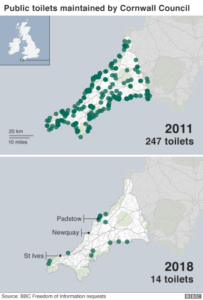
Cornwall’s unitary council saw the number of public toilets it maintains drop over the past five years, from 253 in 2013 to only 14. Over the same time, overall expenditure on toilets was all but wiped out, falling from £4.3m to only £217,000. A council representative said: “We recognise that public toilets are important to residents and visitors alike – but with huge cuts in funding by central government we have been forced, like other local authorities, to review the non-statutory services we provide. “We have now successfully transferred the ownership or management of over 200 public toilets to local city, town and parish councils and local community organisations and businesses. “Only 16 toilets have closed to date.” The council has also started charging for the remaining toilets it runs.
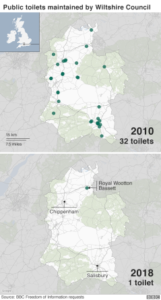
Wiltshire Council now runs only one public toilet on its streets, and another five at park-and-ride sites, in comparison with 32 in 2010.
The council saw its spending on toilets cut by more than £100,000 between the 2016 and 2017 financial years. It said 22 of the toilets were transferred to the control of town and parish councils, and the rest have closed. “We carried out a public consultation exercise in 2015 and the overwhelming response was facilities should be offered to the town and parish councils to run if they felt it was appropriate.”
One of the biggest spenders is the City of London Council. It spent £992,000 on running four public toilets in 2017. In 2010, it spent £1,029,000 on double the number of conveniences. When contacted by BBC News, the council did not comment on why expenditure had remained relatively flat.
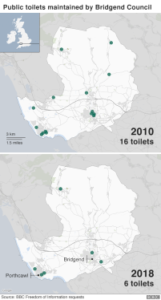
New Forest District Council followed, with an overall expenditure of £877,660 on 24 public toilets and refurbishment work in 2017.
Bridgend County Borough Council in Wales now maintains only six public toilets, down from 16 in 2010. It said that three more toilets were likely to close in the next year, unless they are taken on by town councils, because of budget reductions.
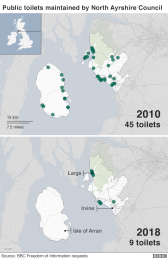
Meanwhile in North Ayrshire, there has been a fall from 45 in 2010 to nine in 2018. The council says five of these were transferred into community ownership and paid for through fundraising, while the rest closed outright.
In Northern Ireland, eight local councils either increased or maintained the same number of public toilets between 2010 and 2018. Fermanagh and Omagh District Council had the highest number of council-run conveniences at 51 in 2018.
Illustrations by Katie Horwich. Maps by Ed Lowther and Prina Shah.
MUSCULAR DYSTROPHY UK

Muscular Dystrophy UK is a charity for the 70,000 people living with muscle-wasting conditions in the UK, many of whom need access to Changing Places toilets. The charity brings together people affected by more than 60 rare and very rare progressive muscle-weakening and wasting conditions. Since 1959, the charity has been supporting families living with muscle-wasting conditions. They provide vital information, advice, resources and support for people with muscle-wasting conditions, their families and the professionals who work with them.
Since November 2017 Muscular Dystrophy UK have been co-chairs of Changing Places Consortium alongside PAMIS.
For further information please contact:
Clare Lucas
Muscular Dystrophy UK,
61A Great Suffolk Street,
London
SE1 0BU
Tel: 020 7803 4838
http://www.musculardystrophyuk.org/
working in partnership with

Dundee
DD1 4JE

Centre for Accessible Environments
Holyer House
20-21 Red Lion Court
London, EC4A 3EB
EMail: info@cae.org.uk
Telephone: 020 7822 8232
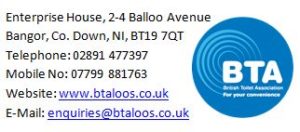
£2m for Changing Places Toilets in Motorway Service Aeras
Government investment of £2million for Changing Places toilets at motorway service stations
Today, the Department for Transport has launched its Inclusive Transport Strategy.
USE OUR LOO’s CAMPAIGN
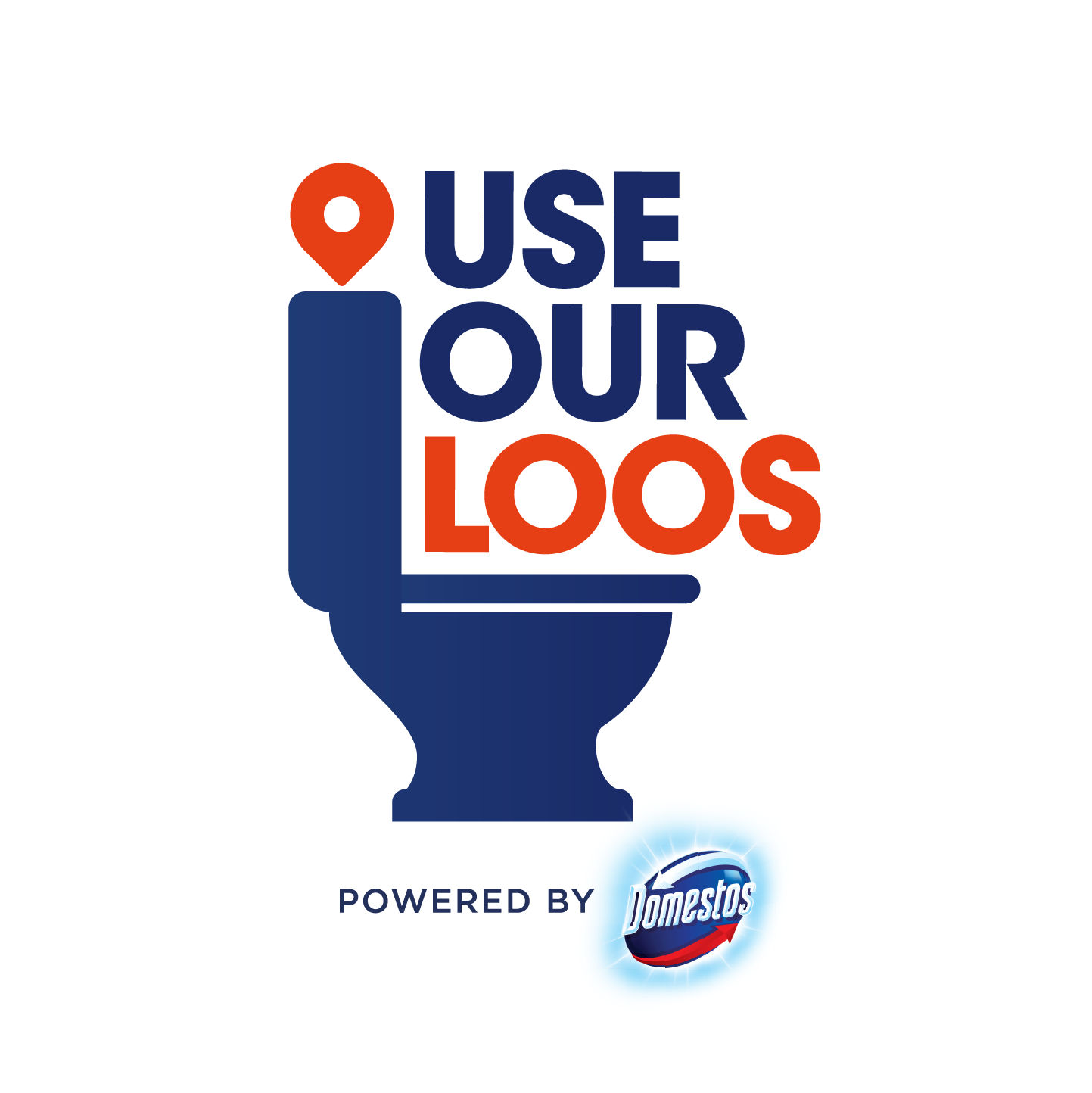
USE OUR LOOS!
Where to go, when you need to go ?
A national campaign mobilising local business to make their loos accessible to the community they serve. We all need to use a loo or public restroom when we are out and about each day and it’s getting harder and harder to find a good clean toilet to get relief and allow us to enjoy the local neighbourhoods. With Local authorities really struggling to provide enough facilities, now many local businesses and store owners are keen join into a Community Toilet Scheme (CTS) to make sure that everyone can continue to enjoy local amenities and continue shopping.
We’re also encouraging many other public buildings including Libraries, Museums, Town and Village halls to join in the drive to reinvigorate the high streets and support local shops & traders.
You can sign your venue up to the Use Our Loos campaign by entering your details here:
https://goo.gl/forms/zsjmQpc8lyCdRt1k1
For more information contact Tara our Campaign Manager at: useourloos@gmail.com or please call the BTA office 0044 (0) 2891 477 397
CAMPAIGN OVERVIEW
The “Use Our Loos” campaign will do the following:
- Ask for public loos to be kept open and more loos in businesses to be made publicly available;
- Thank those who make the commitment to help through visible recognition, instant mapping and free product;
- Drive a connection with their local community and hopefully increase footfall to their businesses;
- Address ‘toilet stigma’ and aim to change the cultural context to appreciation and openness;
- Create the first national campaign to bring together the numerous, disparate Community Toilet Schemes, with singular signage and naming; and
- Ensure all these publicly accessible loos are discoverable at the right time for those in need by collaborating with the Great British Toilet mapping scheme
The British Toilet Association
The BTA along with Uniliver (Domestos Brand), Mumsnet, Gt British Toilet Map, NeonTribe and Edelman have joined forces to promote this National Campaign to record the locations of all publicly available loo’s throughout the UK. The site includes toilets provided by local authorities, private providers like Healthmatic and Danfo (UK) and for the first time we will be promoting those facilities provided by local shops/stores and businesses to help all types of users to find relief when travelling or shopping “away from home”
Unilever (Domestos)
Domestos believes that a clean, safe toilet should be within everyone’s reach. That is why it is tackling the demise of the UK public toilet and making it accessible once more. Just as Domestos has been doing, in many underdeveloped countries, in partnership with UNICEF for over four years waging the war on poor sanitation, because everyone deserves a clean toilet.

Mumsnet was conceived in early 2000 when JustineMumsnet embarked on a disastrous family holiday. Her idea was to create a website where parents could swap advice about not just holidays but all the other stuff parents talk about.
Nineteen years later and who’d have thought it would come to this? Mumsnet is now the UK’s biggest network for parents, with around 10 million unique visitors per month clocking up around 100 million page views.
The Gt British Public Toilet Map
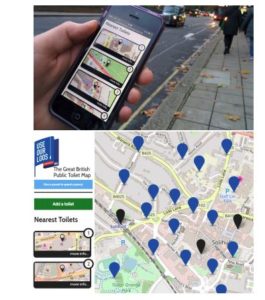
Businesses are rewarded for you doing your business. Fame and visibility from free publicity and hopefully increased turnover from increased footfall. Feeling the added benefit of a warm feeling that they are helping people live their lives to the fullest.
USE OUR LOOS is the first national scheme that unlocks the loos that are hidden in our coffee shops, cafés, restaurants and bars. And gives them back to the community.
NEONTRIBE

Great British Public Toilet Map will eventually provide the most accurate and up-to-date map of publicly available loos in the UK, powered by NeonTribe
Changing Places Toilet Map – Update
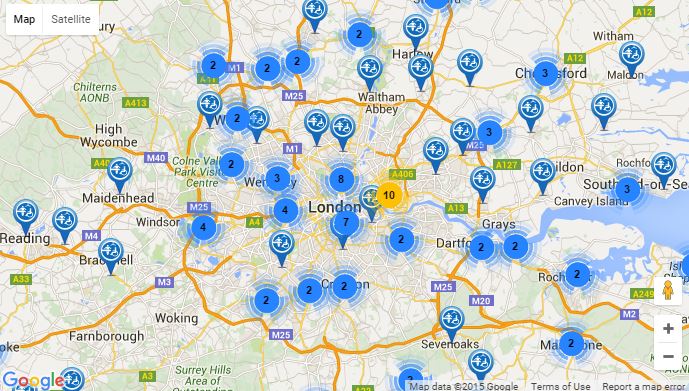
UPDATE:
Tuesday 29th October 2019
1,397 Changing Places Toilets
With nearly fourteen hundred Changing Places toilets now installed and located across the UK the system is becoming increasingly important to both carers and users searching for these types of specialised facilities.
www.uktoiletmap.org

Since November 2017 Muscular Dystrophy UK have now become Co-Chairs of the changing Places Consortium alongside Pamis. Muscular Dystrophy UK is a charity for the 70,000 people living with muscle-wasting conditions in the UK, many of whom need access to Changing Places toilets. The charity brings together people affected by more than 60 rare and very rare progressive muscle-weakening and wasting conditions. Since 1959, the charity has been supporting families living with muscle-wasting conditions. They provide vital information, advice, resources and support for people with muscle-wasting conditions, their families and the professionals who work with them.
The new WebApp will accompany the site. 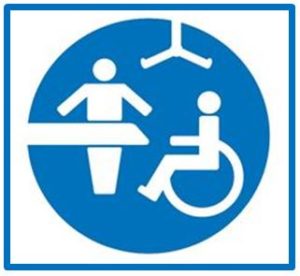 Users can now install the new WebApp on their
Users can now install the new WebApp on their
PC , Tablet or smartphone. This will be available in virtually all formats and will allow users to move directly to the map with having to follow the traditional paths. The WebApp will be totally FREE OF CHARGE for all users of the Changing Places Toilet Map. Additionally the new application will allow for Geo-Centering, which if allowed, will automatically detect your location, and centre the map on it.
Changing Places toilets were designed and created for users with Profound and Multiple Learning Disorders (PMLD). Most of these individuals need very specialized toilet equipment such as hoists, height adjustable beds, screens, sharps disposal and colostomy equipment. The toilets are of sufficient size to allow a wheelchair and up to two adults to move freely in use. Most are protected by a Radar key entry or via local control. In just a few short years the Charter Group has seen the number of CP toilets rise to 784 across the UK and at present are increasing by around 10 – 15 per m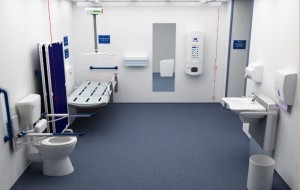 onth.
onth.
We were extremely fortunate to receive a Start-Up grant from the British Cleaning Council (BCC) to cover our initialisation costs – working through design, construct and setting the development goals. After months of extensive consideration and consultation we managed to find and appoint Velocity 42 as our programme developers and I am delighted to report that Chris and the team have completed every task on time and within an extremely tight budget, whilst even incorporating many new ideas and processes. Mencap Headquarters in London received the initial project funding from the Department of Communities and Local Government as well as the regional devolved administration in Scotland, Wales and Northern Ireland and the BTA accepted the role of project coordinator to bring this specialized map to fruition. Members of both Mencap and Pamis have been instrumental in helping to create a new mapping database and delivery system that is easy to use and also contains vital information that everyone needs to find and access to these very specialised units.
The BTA will now develop and manage the growth of the new system whilst our partners will be ensuring that the information is up-to-date and accurate. We believe this new system will provide users with a faster search; greater accuracy to the actual toilet location and opening hours. Users can register their personal details and then Save selected toilets into a Favorites folder for future recovery. Additionally the introduction of a trip planner will greatly help carers and support groups to plan for extended journeys.
The new map will produce an accurate database which will allow us to identify where provision is low or lacking and where new sites are needed. The Information Profile Sheet (IPS) for each toilet contains a Feedback Button that allows users to report to Mencap and Pamis on any remedial action or ideas for future improvement. The map will be accessible using your PC, Laptop, Tablet and various Mobile devices.
You can get immediate access via the Changing Places Website: www.changing-places.org and follow the Find a Toilet tabs. Additionally you can gain access directly from the BTA website on the Changing Places page.
Plans are well established to enhance the map and increase the information available to all users. We are actively working on plans to get news of this launch distributed to as many communities as possible. If you or your organisation is willing to help spread the word, please drop us an email to enquiries@btaloos.co.uk
The Changing Places Campaign
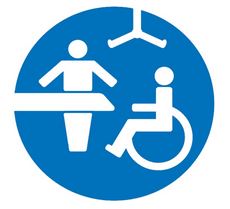 The Changing Places Consortium launched its campaign in 2006 on behalf of the 1/4 of a million people who cannot use standard accessible toilets.This includes people with profound and multiple learning disabilities, motor neurone disease, multiple sclerosis, cerebral palsy, as well as older people.
The Changing Places Consortium launched its campaign in 2006 on behalf of the 1/4 of a million people who cannot use standard accessible toilets.This includes people with profound and multiple learning disabilities, motor neurone disease, multiple sclerosis, cerebral palsy, as well as older people.
To use the toilet in safety and comfort, many people need to be able to access a Changing Places toilet which has enough space and the right equipment, including a height adjustable changing bench and a hoist.
Toilet Tourism boost for China
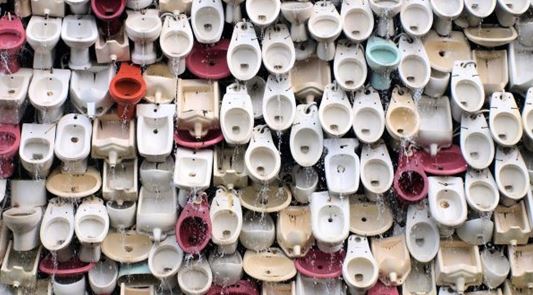
President Xi Jinping, now a bathroom aficionado after frequent visits to inspect the facilities in rural homes, has announced he’s doubling down on a campaign for a Chinese “toilet revolution” that he launched in 2015. Voicing the concerns of many a wary traveller, the communist leader said clean toilets were the cornerstone of a civilized society and would help boost travel to China as well as improving the hygiene of the masses.
China has opened about 68,000 improved bathrooms in tourist areas around the country since Xi began his campaign. Good news for places in China that have long had a notorious reputation for appalling standards of public restroom hygiene. Once deterring visitors with its doorless dry toilets, Jiuzhaigou Natural Reserve in southwestern Sichuan province has just welcomed a series of new eco-toilets around the area.
Last year, Yunnan province, which borders Myanmar, Laos and Vietnam, held a competition to select the most outstanding toilets in tourist attractions. Lijiang Old Town — previously known for toilets without individual cubicles –claimed top prize for offering facilities with odour eliminators, a motion sensor dustbin and green plants.

“Toilet issues are not petty matters but an important aspect of satisfying the public’s desire for a decent and healthy life,” Jack Sim, founder of global sanitation campaigner the World Toilet Organization.
Sim, aka “Mr. Toilet,” says a lack of clean facilities could harm China’s tourism industry in the long run. “China is a beautiful country with rich natural landscapes and culture and a long history,” he says. “But the lack of clean toilets made tourism impossible to be promoted as the tour agencies always get bad reports and complaints after the tour — as the stench, filth and terrible condition of many Chinese toilets horrified foreign visitors.”
China’s government says it now wants toilet improvements nationwide — from tourism spots to cities to rural backwaters. One of the biggest challenges, according to the WTO, is changing cultural attitudes.

“In many cases, money is not the problem, but it is a mindset problem,” says Bai Lin, WTO’s China project manager. “If we are able to make toilets fashionable, just like a cell phone, a TV, or a dream, we can change the toilet culture of China.”
Mumsnet Toilet Debate

A mum has sparked a fierce debate online after revealing her husband takes their daughter into the ladies’ toilets when they’re out in public. Taking to MUMSNET, the mum explained that she had told her hubby that other women would not “like” the fact that he escorted their four-year-old into the ladies’ loos. She wrote: “Help dh [darling husband] and I with a disagreement please. “When dd [darling daughter], four, needs the loo in a public place, he takes her to the ladies’ loos. “I told him that women don’t like that and he should take her to the men’s loo. Am I being unreasonable or is he?”
Needless to say, many were quick to wade into the debate – and the reaction was pretty mixed. Some agreed, saying “adult men should never be in women’s toilets” – while others sympathised with the dad’s plights and said that they could understand why he wouldn’t want to take the little girl into the men’s loos.
One wrote: “Would prefer to see a man take his daughter into ladies if no family/disabled toilet available. Don’t think any young child needs urinal or stinky cubicle exposure.”
Another added: “I can see this from both sides, it wouldn’t bother me but I know how it could upset others.
Someone else wrote: “I would have no issue with seeing a man in the ladies loo with a small child needing a wee.
“I really wouldn’t want my DD at the age of four heading into the men’s loos, they stink!”
Several people even suggested that he should take her to the disabled toilet instead – which sparked further debate about whether this would be appropriate or not.
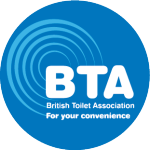
The BTA Director found himself locked in the BBC studios faced with interviews from 18 regional and national radio stations, who became embroiled in this debate. The discussions covered a range of issues from male and female using the alternative provision, right or wrong, through gender neutral toilets and to the use of accessible facilities by the general public.
Whilst there is no immediate solution, without significant investment in more toilets and better overall provision across the country, it continues to highlight the shortfall in government investment in the health and wellbeing of residents and visitors across the UK.
Sainsbury’s introduce Dementia-friendly toilets

Sainsbury’s has become the first supermarket to introduce ‘dementia-friendly’ signs in all store toilets, thanks to a campaigning pensioner who was repeatedly forced to rescue her husband – who suffered from Alzheimer’s – as he tried to find his way to and from the loos. The make-over will include large, colourful ‘way out’ signs to prevent confusion among customers who suffer with memory problems.
Many hospitals have also taken measures to become more dementia-friendly over the past few years, incorporating high-contrast measures to show where the floor joins the wall, visual breaks to mark where handrails are ending and doors painted in distinctive colour. Researchers have also identified that light plays a key role for elderly people, with estimates suggesting that people over the age of 75 need roughly twice as much light as their younger contemporaries in order to see satisfactorily.
Commenting on Sainsbury’s decision, Emma Bould – programme partnership project manager at the Alzheimer’s Society – said:
“We are delighted to see toilets with dementia friendly signage being installed nationally at all Sainsbury’s stores by March 2018. Finding and exiting toilets can often be confusing for people living with dementia, causing anxiety when they are out and about. This small but significant step will enable people with dementia to quickly find the exit, while also making the route clearer to all customers.”











